The Effects of Foods and Drinks on Your Stress Levels — And What to Do About It
September 20, 2022
If you live with chronic stress or anxiety, you likely spend a lot of time trying to manage your symptoms with tools like exercise, deep breathing, and mindfulness.
But did you know that symptoms of stress and anxiety can be triggered or made worse by the foods you choose to eat daily?

This isn’t to say that stress management tools aren’t helpful, but if chronic stress is still impacting your life, it might be worth considering what’s on your plate.
Research suggests that overeating certain foods can generate stress, anxiety, and depression. The good news is that your food intake is under your control. By making healthier food choices, you can help manage your stress levels and, in many cases, significantly improve your mental well-being.
So, what foods should you avoid and which ones should you embrace? Let’s find out.
What Foods Can Cause Stress?
When we feel stressed or anxious, our instinct is to reach for foods and drinks for comfort, and maybe even for an escape. However, the foods we reach for in times of stress often increase our stress levels, adding fuel to the fire.
Eating too much of any one food can be unhealthy, but overconsuming the following foods and drinks are particularly harmful to one’s psyche. These stress-inducing foods are commonplace in all corners of the globe, but tend to be more prevalent in food deserts—areas with limited access to affordable and nutritious food.
Depending on where you live and other factors, you might not be able to completely eliminate these foods and drinks, but do your best to consume them sparingly.
#1: Candy and Desserts

Candy, cakes, cookies, pies, and other sugary confections are packed with added sugar, which can cause your blood sugar to go on a rollercoaster ride of spikes and crashes.
You may get an initial energy boost from eating sugar-laden treats, but once the energy boost has peaked, blood sugar levels quickly drop. This spike and drop can trigger stress and anxiety and feel almost like a panic attack.
#2: Sugary Drinks

The combination of sugar and caffeine found in many sweet drinks, such as soda, is a double whammy to your stress levels. A 12-ounce can of soda contains a whopping 8-13 teaspoons of sugar and 30-50 mg of caffeine, depending on the type.
With this combo, you not only experience anxiety-producing blood sugar spikes, but the caffeine stimulates your central nervous system, which can trigger your body’s fight-or-flight response.
In some people, regularly consuming large amounts of sugar (such as those in sugary beverages) can lead to addictive tendencies, further exacerbating stress and anxiety symptoms.
#3: Alcohol

Many people reach for a glass of wine or a beer when they’re feeling stressed or anxious—but this attempt at self-soothing usually backfires. Although it might seem like a drink calms your nerves, alcohol can have a negative impact on your hydration, sleep, and serotonin and dopamine levels, all of which can trigger stress symptoms.
Moreover, excessive alcohol consumption can lead to addiction and contribute to stress-inducing health problems, including heart disease, cancer, dementia, depression, and anxiety.
#4: Gluten
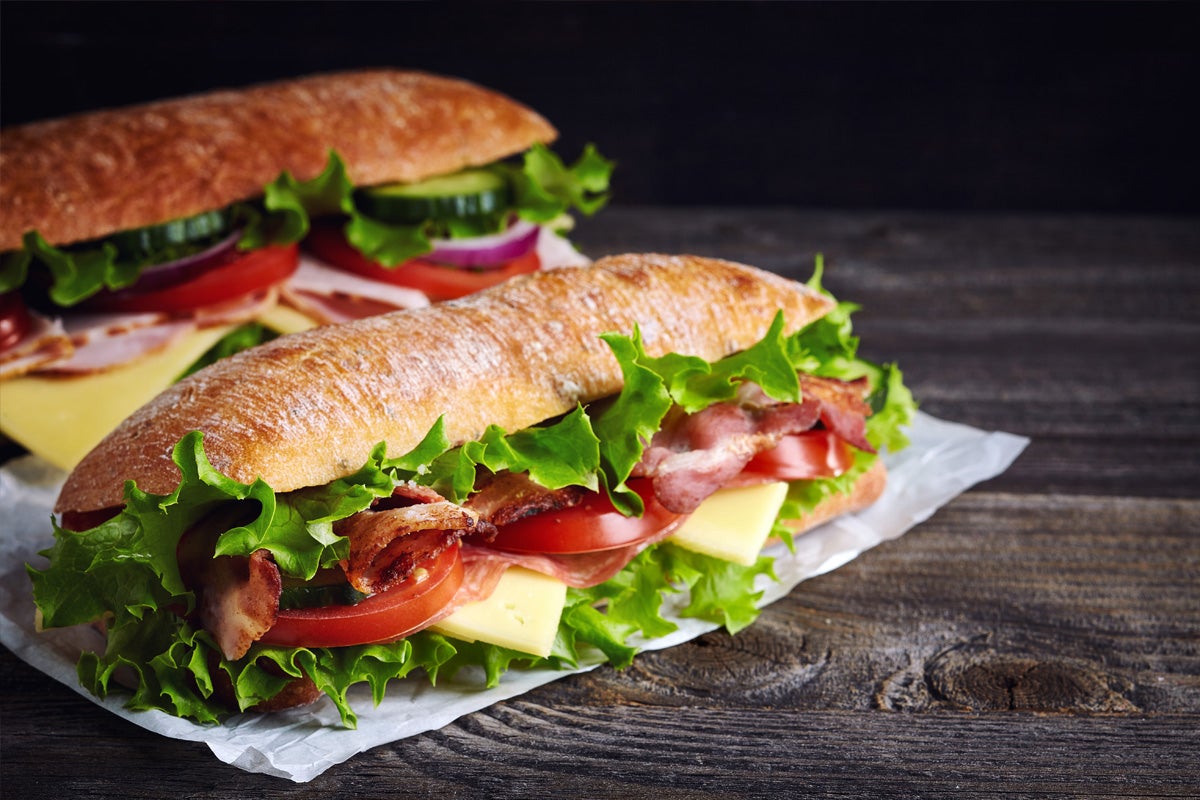
Could your sandwich bread be causing you stress? Most people can consume gluten—a group of proteins found in a variety of cereal grains—without any problems. However, research suggests that gluten may contribute to mood disorders in some people.
Though the reason a subset of people experience increased depression and anxiety when they consume gluten is unclear, it could be due to alterations in the gut microbiome, a community of beneficial bacteria in your digestive tract.
#5: Processed Meats

A significant link has been discovered between processed meat consumption and increased risk of experiencing depression symptoms. Other research has found that people who consume more ultra-processed food, such as bacon and sausage, have higher perceived stress levels.
The combination of increased depression and higher stress levels is a surefire recipe for amplified worry and tension.
#6: Caffeinated Products

Caffeine—the most widely used psychoactive substance in the world—is found in popular foods and drinks, including coffee, tea, chocolate, soft drinks, and energy drinks. It works as a stimulant that speeds up the central nervous system, which temporarily elevates the mood and postpones fatigue.
While a moderate amount of caffeine can help you feel alert and increase productivity, consuming too much caffeine can contribute to stress in several different ways. It can increase blood pressure and stress hormones, amplify people’s perception of stress, and cause sleep issues.
So, how much caffeine is too much? Research suggests that the average healthy adult can consume up to 400 mg of caffeine daily (about four cups of coffee) without adverse side effects. This amount will be a bit different for everyone, so experiment to find what works best for you.
Foods That Help Manage Stress
Now that you’re familiar with which foods and drinks you should limit or avoid, it’s time to talk about which foods can support you in managing your stress. While it’s important to eat a balanced diet that includes a wide variety of foods, here are some stress-busting foods to regularly include in your diet.
#1: Fruits with Vitamin C
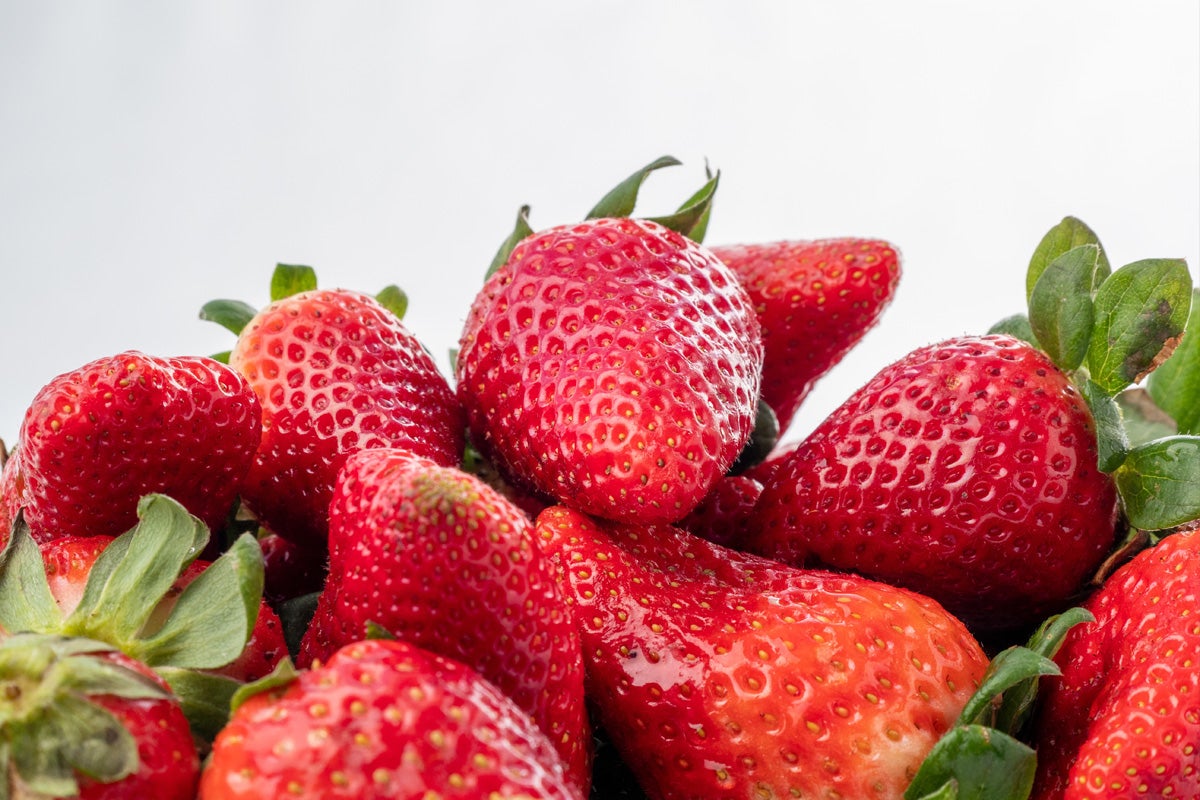
Vitamin C is not only good for colds—it may also help reduce stress and anxiety. Some vitamin C-rich fruits to enjoy include oranges, grapefruits, lemons, limes, strawberries, cantaloupe, and kiwi.
#2: Foods with Omega-3 Fatty Acids
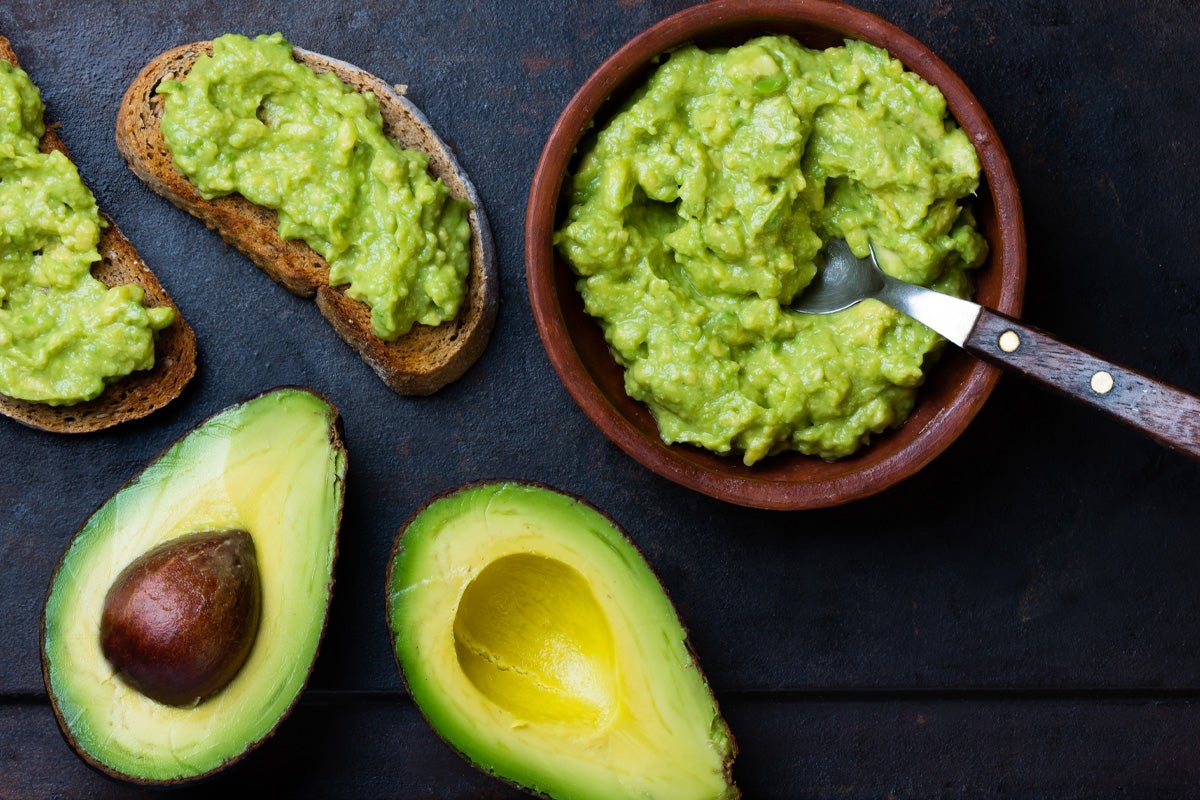
Omega-3 fatty acids are a type of essential fat that the body can’t produce on its own. As such, we must obtain omega-3s from foods, such as salmon, herring, mackerel, avocados, soybeans, walnuts, flax seeds, chia seeds, and hemp seeds.
While omega-3s are best known for their heart-healthy benefits, they may also help improve mood and ease mild to moderate anxiety symptoms.
#3: Unrefined Carbs
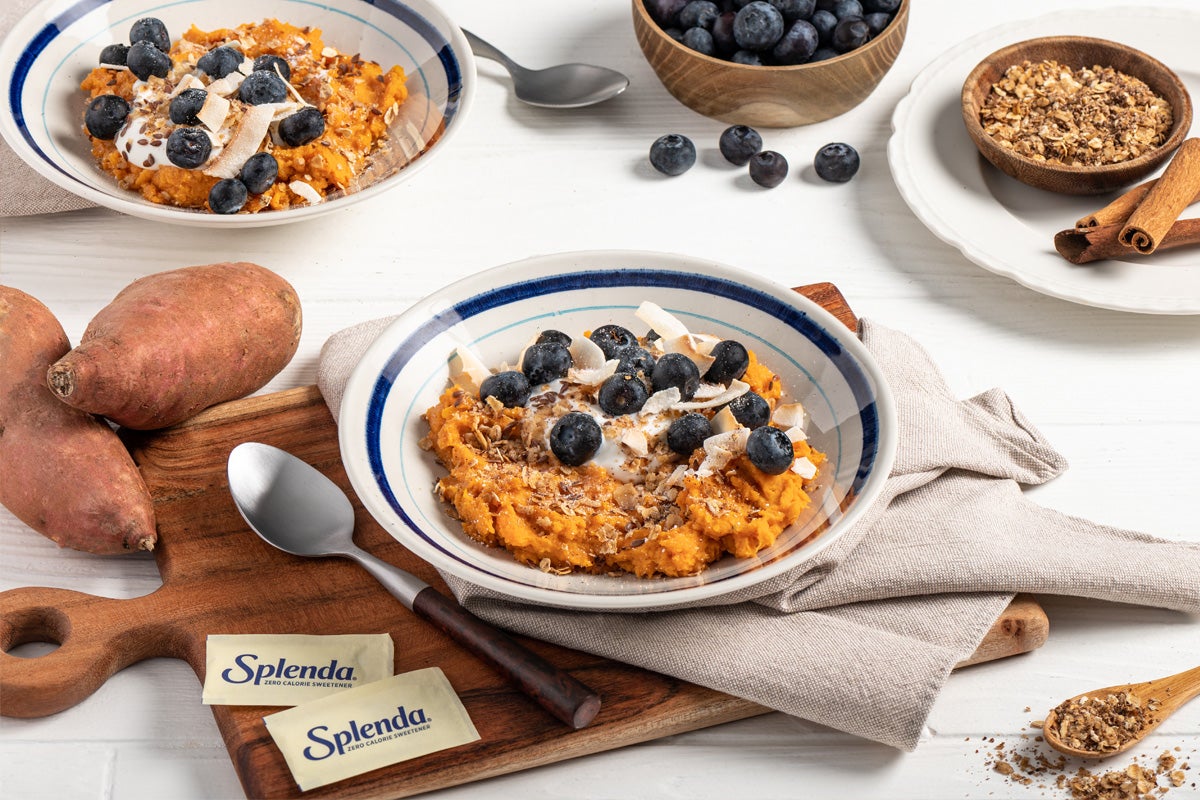
This is your permission slip to eat more carbs—unrefined carbs, that is. Unrefined carbs refer to carbohydrates in their whole, natural, fiber-rich form, such as sweet potatoes, whole grain bread, brown rice, oatmeal, and legumes like kidney beans and lentils.
In addition to benefiting heart health, digestion, and energy levels, unrefined carbs may help combat stress by temporarily increasing serotonin levels in the brain. Next time you’re feeling stressed, reach for a bowl of oatmeal instead of a donut.
#4: Sugar-Free Sweeteners
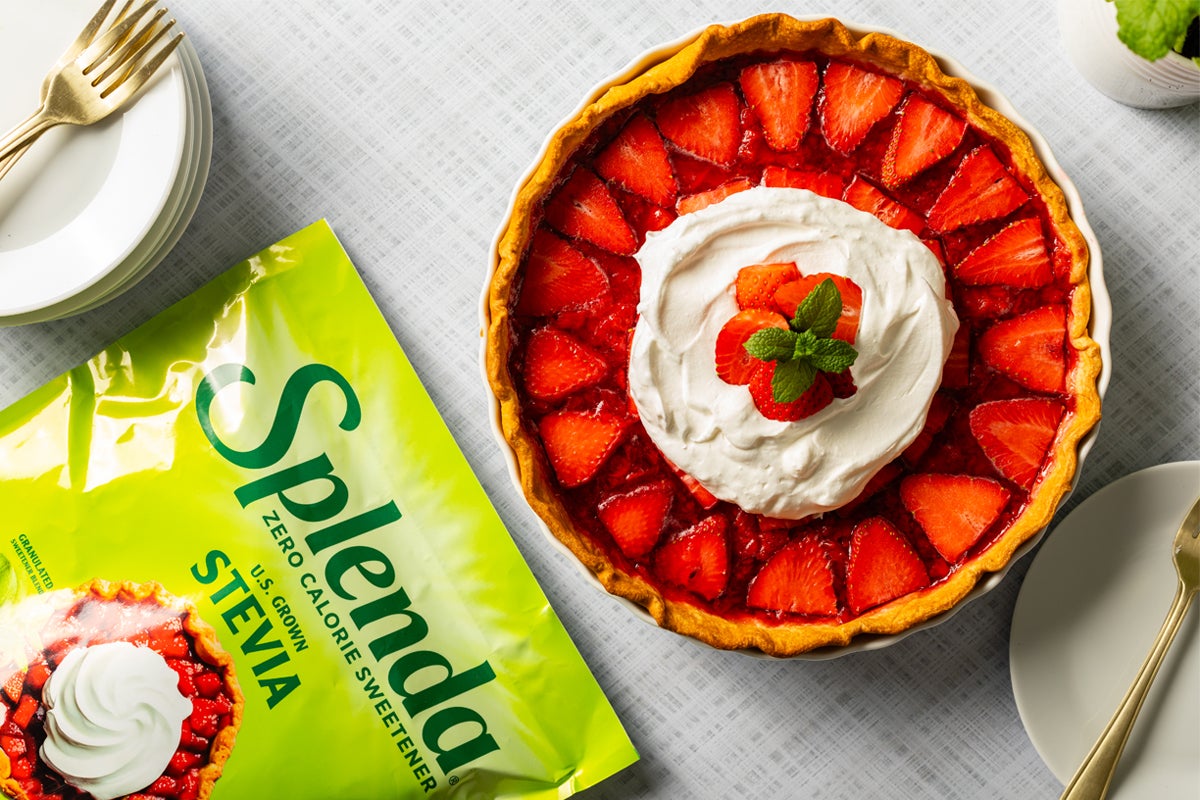
Eating a high-sugar diet is linked to anxiety and depression, but that doesn’t mean you have to deny your sweet tooth. Natural sugar substitutes like stevia and monk fruit can provide sweetness without adverse effects like blood sugar spikes, mood issues, and weight gain.
Simply use Splenda Stevia Sweetener, Splenda Monk Fruit Sweetener, Splenda Magic Baker Sweetener, or Splenda Original Sweetener (Splenda Sucralose) in place of regular sugar in your recipes. These sugar alternatives can be used in baked goods, drinks, oatmeal, and other kitchen creations that need a dose of sweetness.
A Final Word on Food and Stress Levels
Reducing foods and drinks that trigger stress and anxiety and increasing your consumption of stress-busting foods is an important step in supporting your mental and physical well-being.
Don’t feel like you have to completely overhaul your diet all at once. Go at your own pace and do what you can. Soon enough, you’ll reap the rewards by bringing forth a calmer, happier you.
Written by Katie Koschalk, a health and wellness writer, certified holistic nutritionist, and certified personal trainer based in California.

